Disrupting for Good: AI, ...
Online Conference
28 Jan 2026 / 29 Jan 2026 read more

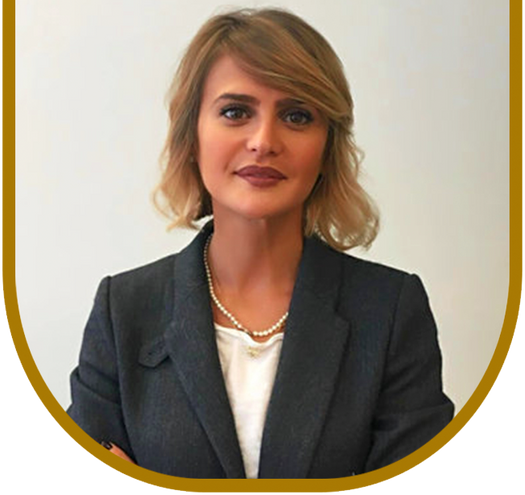
Anna Laura Pisello
Full professor of Building Physics and Energy Systems at University of Perugia.

Cristina Piselli
Assistant Professor, DIDA - Department of Architecture, University of Florence, Italy.
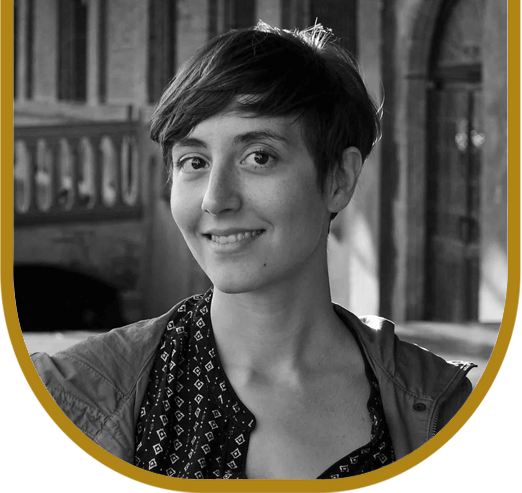
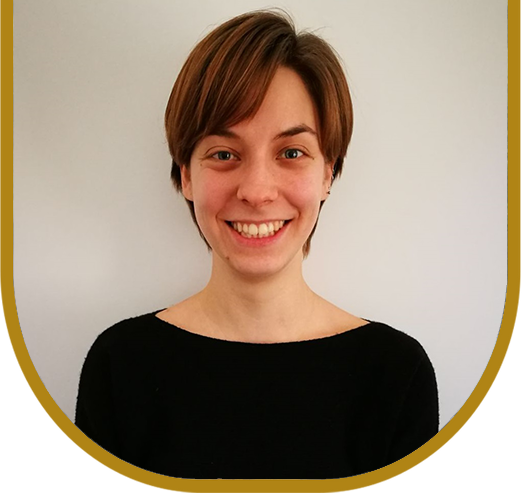
Subscribe to our newsletter
The Third edition of the International Conference on “Health & Environmental Resilience and Livability in Cities (HERL)” was held in collaboration with the University of Perugia in Italy, and took place Online from the 16th to the 17th of July, in an effort to include attendees from all corners of the world.
The conference discussed the innovations in environmental analysis and sensing methodologies, incorporating smart systems & the internet of things (IoT), as well as big data analytics, further developing environmental stability, and human livability. The conference successfully highlighted the multiple frontiers upon which mankind has to take action in efforts to combat the harmful effects of climate change on the globe.
The conference covered a wide array of topics that pertain to the sustainable development of cities and architectural constructs. Some of the main topics that were discussed include:
1- Urban Development and Community Engagement
2- Sustainable Energy and Climate Adaptation
3- Architecture, Design, and Well-being
4- Environmental Impact and Resilience
Chaired by Prof. Anna Laura Pisello, Full professor of Building Physics and Energy Systems at University of Perugia and Prof. Cristina Piselli, Assistant Professor, DIDA - Department of Architecture, University of Florence, Italy, day 1 showcased the tremendous work that was evident in our speakers’ presentations.
It also welcomed Prof. James Ehrlich, (Director of Compassionate Sustainability for the CCARE Institute at Stanford University School of Medicine) with a keynote speech on “Applying machine learning software for the generative design of resilient and self-reliant residential infrastructure”.
As well as, a speech about “Green Infrastructures, Ecological-Cultural Devices for The Landscape Project” by Dr. Antonella Valentini, Researcher (RtdA) in Landscape Architecture, University of Florence.
Day 2
Welcomed Dr. Jorge S. Dolado, (Head of the Ceramic and Cement based Materials (C2M) group at the Centre for Materials Physics (CFM, CSIC-UPV/EHU) with a keynote speech on “Constructing Solutions Using Cement-Based Materials for Energy Harvesting and Storage”.
As well as, a speech about “Energy Policy Design in the Eastern Mediterranean Basin: A Roadmap to Energy Efficiency” by Dr. Bertug Ozarisoy, Lecturer in Architecture: Technology in the School of the Built Environment and Architecture at the London South Bank University, London, UK.
We are proud to have received such innovative contributions and are filled with excitement.
Climate change is a widespread and ongoing issue that is threatening our existence more and more every day and is reflected in matters such as global warming and food and water scarcity. Human activities have become the main factor at play when it comes to the rapid deterioration of our environment, mainly due to the burning of fossil fuels which consequently produces heat-trapping gases when burned.
Besides threatening life on earth for humans and all of biodiversity, these environmental changes affect human health, causing physical and even psychological conditions such as asthma, renal failure, pre-term birth and anxiety-related response or disorders. There are ongoing efforts to decrease the rate of our climate’s deterioration such as attempting to use renewable energy rather than fossil fuels and opting for more green alternatives in general and not just in regards to fuels.
In an effort to keep to conversation going, IEREK is planning its 3rd international conference on Health & Environmental Resilience and Livability in Cities (HERL), which is a chance for scientists and researchers from around to globe to come together and excavate solutions for the ongoing and recent environmental threats. IEREK welcomes participants of various backgrounds and offers them the opportunity to publish in Scopus-indexed ASTI book series by Springer. The proceedings of the 3rd International Conference on "Health & Environmental Resilience and Livability in Cities (HERL)", will be hosted online in collaboration with the esteemed Perugia University, Italy. In recent decades, the world has witnessed an unprecedented pace of urbanization, with a significant majority of the global population now residing in urban areas. As cities continue to expand and evolve, the interplay between health, environmental sustainability, and urban livability has become an increasingly pressing concern.
The theme of this conference underscores the critical importance of fostering resilient, sustainable, and livable urban environments for the well-being of current and future generations. As cities grapple with multifaceted challenges ranging from public health crises and environmental degradation to social inequities and infrastructure deficiencies, the need to engage in interdisciplinary dialogue and collaborative action has never been more pertinent.
We extend our sincerest gratitude to all contributors, participants, and supporters who have contributed to the success of the 3rd HERL conference. Your collective dedication to advancing the cause of urban health and environmental resilience is truly commendable, and we look forward to the enduring impact of our shared endeavors.
Against this backdrop, the 3rd HERL conference provides a platform for scholars, practitioners, policymakers, and stakeholders from around the globe to convene, exchange insights, and chart a course toward healthier, more resilient, and livable cities. By delving into topics such as urban health disparities, green infrastructure, green energy, material for sustainable and renewable energy, climate resilience, community engagement, and innovative urban planning, this conference aims to catalyze transformative approaches that can enhance the health and well-being of urban residents while safeguarding the natural environment.
Furthermore, the collaboration with Perugia University underscores the international scope of this undertaking and the shared commitment to advancing knowledge and solutions in the realm of urban health and environmental resilience. Through this collective endeavor, we aspire to harness the collective expertise and experiences of diverse participants to generate actionable strategies and best practices that can be applied in urban settings worldwide.
1.1 Innovative sustainable building design for resilient cities
1.2 Advances in E-Mobility and Alternative Fuel Vehicles for Urban Transportation
1.3 Smart Grids and Distributed Energy Resources for Resilient Cities
1.4 Smart Cities and the Use of Technology for Sustainable Development
1.5 Future innovations for sustainable and regenerative cities
1.6 Active Transportation and Walkable Cities, Cycling Infrastructure and Bike-Sharing Programs
1.7 Public Transit and Mass Rapid Transit Systems
1.8 Electric and Low-Emission Vehicles in Urban Areas
1.9 Integrated Land Use and Transportation Planning
1.10 Traffic Management and Congestion Reduction
2.1 Intelligent transport systems for urban mobility management
2.2 Sustainable energy systems for urban resilience
2.3 Renewables integration in urban energy systems
2.4 Addressing health inequities through urban planning and design
2.5 Resilient governance for sustainable urban development
2.6 Mitigate climate change impacts in urban areas
2.7 Access to Healthcare Services
2.8 Socioeconomic Determinants of Health
2.9 Health Inequities in Underserved Communities
2.10 Urban Mental Health Challenges and Infectious Disease Management in Cities
3.1 Social cohesion and inclusion through sustainable regeneration
3.2 Innovative solutions for disaster preparedness and response
3.3 Sustainable operation in urbanism
3.4 Mitigation of the urban heat-island effect
3.5 Ecological considerations in urban planning
3.6 Climatic impacts on cities’ livability and residents’ health
3.7 Affordable housing and homelessness solutions
3.8 Equitable access to public amenities and services
3.9 Promoting economic diversity and opportunity within urban areas
4.1 Resilient Urban Infrastructure Systems, Green Infrastructure and their role
4.2 Integrating Green and blue infrastructure in building design
4.3 Biodiversity Conservation within cities
4.4 Green building solutions for climate adaptation
4.5 Net-zero building design and the path to carbon-neutral cities
4.6 Compact and Sustainable Urban Form: Mixed-Use Development and Urban Revitalization
4.7 Transit-Oriented Development and Urban Connectivity
4.8 Urban Design for Social Interaction and Well-Being
4.9 Human-Centered Design: Resilient Urban Landscapes and Waterscapes
5.1 The significance of sustainable practice implementation in cities
5.2 Transitioning towards renewable energy resources
5.3 Smart methods of energy saving and waste management
5.4 Technological innovations and smart cities
5.5 Smart homes and interconnected households
5.6 Analytical examples and reviews on using passive energy in urban buildings design
5.7 Sustainable materials and nanotechnologies for energy saving
5.8 Biomass energy: biofuels, biogas, biomass power plants
5.9 Challenges and solutions for integrating renewable energy into the existing power grid
6.1 Integrating solar power systems to buildings and urban features
6.2 Solar-powered water in urban landscape; street lighting, signs and other facilities
6.3 Solar energy's contribution to achieving sustainable development goals
6.4 Rural electrification and energy access in developing countries
6.5 Solar-powered microgrids and decentralized energy systems
6.6 Integration of solar energy with energy storage systems
6.7 Solar-powered transportation and electric vehicles
6.8 Solar thermal and heating systems
6.9 Urban energy: supply Solar power for residential neighborhoods
7.1 Urban Biodiversity Conservation
7.2 Sustainable Urban Land Use Planning
7.3 Green Spaces and Public Health
7.4 Urban Forestry and Tree Canopy Management
7.5 Green Roofs and Vertical Gardens
7.6 Urban Agriculture and Food Security
7.7 Stormwater Management and Urban Resilience
7.8 Ecological Restoration in Urban Settings
7.9 Green Infrastructure Policy and Implementation
8.1 Urban Heat Island Mitigation Strategies
8.2 Climate-Responsive Urban Design and Architecture
8.3 Flood Risk Management in Urban Areas
8.4 Resilient Infrastructure for Extreme Weather Events
8.5 Climate Change, Air Quality, and Public Health
8.6 Urban Water Security and Drought Management
8.7 Energy Efficiency and Renewable Energy in Cities
8.8 Community-Based Climate Adaptation Initiatives
8.9 Climate Resilience Governance and Planning
9.1 Urban Environmental Monitoring: Noise Pollution Monitoring and Mitigation Strategies
9.2 Air and Water Quality Monitoring and Management in Urban Environments
9.3 Health Informatics and Urban Health Management
9.4 Role of Electronic Health Records (EHR) in Urban Health Management
9.5 Machine Learning and Predictive Analytics in Urban Health Management
9.6 Community-Based Disaster Risk Reduction
9.7 Public Health Emergency Response and Management
9.8 Interagency Collaboration for Urban Public Health Emergency Management
9.9 Crisis Communication and Risk Communication in Urban Health Emergencies
9.10 Innovative Technologies in Urban Vaccination and Mass Immunization Planning
|
Title |
Date |
|
Abstract Submission Deadline |
25 April 2024 |
|
Last Notification for Abstract Acceptance & Approval to present |
30 April 2024 |
|
Full Paper Submission Deadline |
31 May 2024 |
|
Notification of Preliminary acceptance or rejection of Full Paper |
10 June 2024 |
|
Payment Start Date |
15 Feb 2024 |
|
Payment End Date |
31 May 2024 |
|
Conference Program |
25 Jun 2024 |
|
Conference Launch |
16 Jul 2024 |
All accepted submissions to the conference, after a rigorous double-blinded peer-review process by the respective and a highly-extinguished Editorial Board, will be published in one of the following:
 Advances in Science, Technology and Innovation (ASTI), an IEREK Interdisciplinary book series published by Springer Nature. (Scopus indexed)
Advances in Science, Technology and Innovation (ASTI), an IEREK Interdisciplinary book series published by Springer Nature. (Scopus indexed) About ASTI
Advances in Science, Technology & Innovation (ASTI) is a series of peer-reviewed books based on important emerging research that redefines the current disciplinary boundaries in science, technology and innovation (STI) in order to develop integrated concepts for sustainable development. It not only discusses the progress made towards securing more resources, allocating smarter solutions, and rebalancing the relationship between nature and people, but also provides in-depth insights from comprehensive research that addresses the 17 sustainable development goals (SDGs) as set out by the UN for 2030.
The series draws on the best research papers from various IEREK and other international conferences to promote the creation and development of viable solutions for a sustainable future and a positive societal transformation with the help of integrated and innovative science-based approaches. Including interdisciplinary contributions, it presents innovative approaches and highlights how they can best support both economic and sustainable development, through better use of data, more effective institutions, and global, local and individual action, for the welfare of all societies. The series particularly features conceptual and empirical contributions from various interrelated fields of science, technology and innovation, with an emphasis on digital transformation, that focus on providing practical solutions to ensure food, water and energy security to achieve the SDGs. It also presents new case studies offering concrete examples of how to resolve sustainable urbanization and environmental issues in different regions of the world. Read More.
The ASTI series is fully indexed in Scopus and any chapter/ paper published as part of this series will be seen on the Scopus database. Some titles have been successfully indexed or submitted for indexation in Web of Science (ISI).
About Built Heritage Journal
Built Heritage aims to enhance pluralism and criticism in debates on heritage conservation and revitalization with a globalized perspective. The conceptual basis of this refereed journal lies on the fundamental cultural differences concerning built heritage conservation, recognizing these differences as a source for creativity and a motivation for cutting-edge experimentation. It fosters scientific exchange between Chinese and international scholars and practitioners, offering a platform to record the latest developments in the field. Encouraging international authorship and evaluation, it allows for the homologation of research and practice with regards to cultural diversity.
Built Heritage promotes the awareness for built heritage conservation in China and internationally, inviting scholars to reflect on current hot topics discussions as: the role of contemporary architecture in historic environments; the balance between conservation and development; new tools of heritage management; policy, culture and identity; energy consumption and sustainability.
 IEREK Press Journals, a multidisciplinary publisher that aims to cultivate and disseminate research.
IEREK Press Journals, a multidisciplinary publisher that aims to cultivate and disseminate research.
ESSD is a peer-reviewed, scholarly journal that aims to systematically develop the research-driven curiosity and evidence-based discourse of aspiring scholars that seek to contribute to the academic community. As the world is currently living in an age of information where sources are widely available on the Internet, we at ESSD seek to efficiently utilize the available information to help create robust and evidence-based knowledge. In the process, we offer researchers, in general, and young and aspiring ones in particular a quicker way to get their work published and gain exposure through online open access. We pride ourselves on getting submitted work to be published quickly, through the use of our worldwide pool of subject specialist peer reviewers. Find out more about ESSD International Journal here.

ARChive is an open-access journal that publishes conference proceedings on a wide range of topics relating to social sciences. Consequently, it accepts original research papers on a wide spectrum of subjects. ARChive is a journal published on behalf of researchers that perpetually make an effort to contribute to their fields and provide them with high visibility of research submitted. The series publishes, both, theoretical and experimental high-quality papers of current and perpetual interest. It serves to cultivate, propagate, and essentially archive academic research that has been authored and submitted for academic conferences.
Find out more about ARChive International Journal here.

Resourceedings is an open access journal that publishes conference proceedings. Conference proceedings compromise of different disciplines, ranging from Engineering including built environments, architecture, and sustainability. Disciplines also include Technology and Energy. Resourceedings is a journal that publishes research articles that shed light on different crucial issues in order to provide them with solutions and suggestions. The journal publishes articles submitted by researchers of interest in different fields.
Find out more about Resourceedings International Journal here.
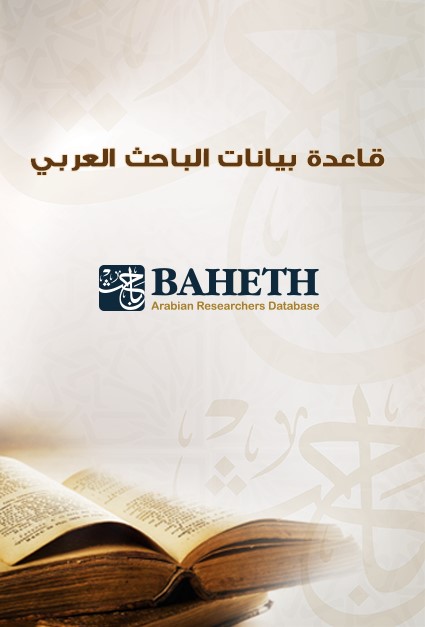
“BAHETH” in Architecture, Engineering, and Technology, is a peer-reviewed journal that publishes original academic research in the fields of Architecture, Engineering, and Technology. The journal welcomes research in the Arabic Language with an English Abstract. Papers submitted to this journal in Arabic must be presented in the English Language in the conference.
Find out more about BAHETH International Journal here.
Publishing in ASTI by Springer (Scopus indexed) 
After the conference, the submitted manuscripts of authors interested in publishing in the ASTI book series will undergo a rigorous peer-review process resulting in a final decision made by the editors. Only accepted research will be published as a chapter in the Book Series entitled “Advances in Science, Technology and Innovation” (ASTI) by Springer. The ASTI Book Series is by managed highly professional members of an International Editorial Board to ensure high-quality material for online publication.
The ASTI Book Series is fully indexed in Scopus. Some titles have been successfully indexed or submitted for indexation in Web of Science (ISI).
 |
 |
 |
 |
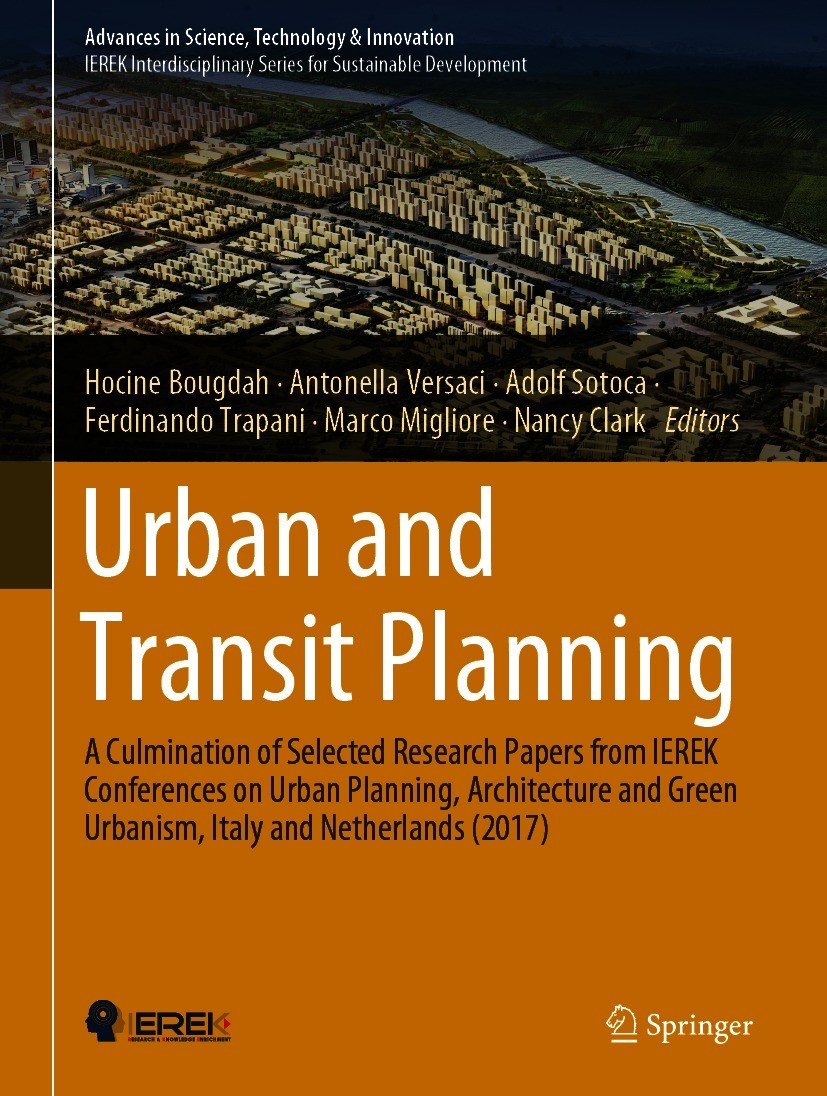 |
About the ASTI series
Advances in Science, Technology & Innovation (ASTI) is a series of peer-reviewed books based on important emerging research that redefines the current disciplinary boundaries in science, technology, and innovation (STI) in order to develop integrated concepts for sustainable development. It not only discusses the progress made towards securing more resources, allocating smarter solutions, and rebalancing the relationship between nature and people, but also provides in-depth insights from comprehensive research that addresses the 17 sustainable development goals (SDGs) as set out by the UN for 2030.
The series draws on the best research papers from various IEREK and other international conferences to promote the creation and development of viable solutions for a sustainable future and a positive societal transformation with the help of integrated and innovative science-based approaches. Including interdisciplinary contributions, it presents innovative approaches and highlights how they can best support both economic and sustainable development, through better use of data, more effective institutions, and global, local, and individual action, for the welfare of all societies.
The series particularly features conceptual and empirical contributions from various interrelated fields of science, technology, and innovation, with an emphasis on digital transformation, that focus on providing practical solutions to ensure food, water, and energy security to achieve the SDGs. It also presents new case studies offering concrete examples of how to resolve sustainable urbanization and environmental issues in different regions of the world.
The series is intended for professionals in research and teaching, consultancies and industry, and government and international organizations. Published in collaboration with IEREK, the Springer ASTI series will acquaint readers with essential new studies in STI for sustainable development.
About Springer:
Springer is a leading global scientific, technical and medical portfolio, providing researchers in academia, scientific institutions and corporate R&D departments with quality content through innovative information, products and services. Springer has one of the strongest STM and HSS eBook collections and archives, as well as a comprehensive range of hybrid and open access journals. Springer is part of Springer Nature, a global publisher that serves and supports the research community. Springer Nature aims to advance discovery by publishing robust and insightful science, supporting the development of new areas of research and making ideas and knowledge accessible around the world. As part of Springer Nature, Springer sits alongside other trusted brands like Nature Research, BioMed Central, and Palgrave Macmillan.
Click on the below image to learn more about the editors

Doctor Anna Laura Pisello is currently an Assistant Professor of Applied Physics at the University of Perugia in Italy. She is the author of more than 80 papers of which 50 of them are published in international peer-reviewed journals. She is the winner of five international academic awards 2013–2017. She serves as Editor-in-Chief of “Environmental Sciences and Sustainable Development” (IEREK). Her research falls into two main areas of interest: innovative smart materials for the multifunctional optimization and thermos-physics characterization of building envelopes, and indoor-outdoor microclimate for environmental comfort and energy saving, with dedicated attention to the resilience of dense urban areas and cities to climate change. Within the framework of these two main themes, she investigates the following topics: energy efficiency and thermal-energy performance optimization in buildings, new analysis methods for estimating the effect of innovative strategies, continuous monitoring techniques for detecting building thermal-energy performance, high albedo solutions for passive cooling and as mitigation strategy against urban heat island phenomenon, local climate boundary conditions affecting building thermal-energy behavior, indoor-outdoor microclimate analysis for preserving cultural heritage. Doctor Pisello is the Series Editor responsible for book proposals submitted in the field of Alternative and Renewable Energies in Architecture and Urbanism.

Born in Umbertide (Perugia), Italy, in 1988. Master degree in Building Engineering - Architecture at University of Perugia, Italy, in 2014. PhD in Energy and Sustainable development at CIRIAF - University of Perugia, Italy, in 2018. Research Fellow at CIRIAF - Interuniversity Research Centre on Pollution and Environment “Mauro Felli”, Department of Engineering, University of Perugia, Italy, as member of the EAP Lab (Environmental Applied Physics Laboratory) team, dealing with building energy efficiency and, specifically, dynamic analysis of building energy performance, occupant behavior, human comfort in the built environment, urban heat island mitigation, and energy systems.

ESSD is a peer-reviewed, scholarly journal that aims to systematically develop the research-driven curiosity and evidence-based discourse of aspiring scholars that seek to contribute to the academic community. As the world is currently living in an age of information where sources are widely available on the Internet, we at ESSD seek to efficiently utilize the available information to help create robust and evidence-based knowledge. In the process, we offer researchers, in general, and young and aspiring ones in particular a quicker way to get their work published and gain exposure through online open access. We pride ourselves on getting submitted work to be published quickly, through the use of our worldwide pool of subject specialist peer reviewers.
Find out more about ESSD International Journal here.

ARChive is an open-access journal that publishes conference proceedings on a wide range of topics relating to social sciences. Consequently, it accepts original research papers on a wide spectrum of subjects. ARChive is a journal published on behalf of researchers that perpetually make an effort to contribute to their fields and provide them with high visibility of research submitted. The series publishes, both, theoretical and experimental high-quality papers of current and perpetual interest. It serves to cultivate, propagate, and essentially archive academic research that has been authored and submitted for academic conferences.
Find out more about ARChive International Journal here.

Resourceedings is an open access journal that publishes conference proceedings. Conference proceedings compromise of different disciplines, ranging from Engineering including built environments, architecture, and sustainability. Disciplines also include Technology and Energy. Resourceedings is a journal that publishes research articles that shed light on different crucial issues in order to provide them with solutions and suggestions. The journal publishes articles submitted by researchers of interest in different fields.
Find out more about Resourceedings International Journal here.

An architect and landscape architect, since 2021 she is a fixed-term researcher in Landscape Architecture at the Department of Architecture, University of Florence. From 2005 to 2021 she taught as adjunct professor. She has been carrying out researching activities since 1995 dealing with landscape design, through scholarship or grant, or being scientific coordinator. She has a degree in Architecture (1995), a second level master at the Specialization School “Garden and landscape design” (2001), and a Ph.D. in “Landscape design” (2005). She has organized or has been a speaker in various national and international conferences. Member of the editorial staff of Ri-vista - Research on the Landscape Design of the University of Florence since 2004, she was also a member of the magazine Architettura del Paesaggio during the years 2012-2019. She is now editor in chief of Architettura del Paesaggio. She is a member of AIAPP-Italian Association of Landscape Architects, association that is part of IFLA-International Federation of Landscape Architects. She worked as professional from 1996 to 2021 dealing with landscape planning and design. In 2009 she founded an associate studio based in Florence and named Paesaggio2000 which she led till 2021. Between 1997 and 1998 she was engaged in research activities for the Municipality of Florence, and between 2000 and 2002 she was engaged in research at the Tuscany Region. From 2005 she teaches 'Landscape Architecture' at various master courses, second level master courses and professional courses. Currently, she teaches at the School of Agriculture (Course in Sciences and Technologies for the Management of Green Spaces and Landscape) and the School of Architecture (Master Course in Landscape Architecture, Master Course in Architecture).

Dr. Bertug Ozarisoy is an architect and expert in building energy modelling both in the UK and Cyprus. His research focuses on understanding the theory between architecture and energy policy design in conjunction with exploring the impact of passive cooling systems on domestic energy use and households’ thermal comfort. Dr. Ozarisoy has an intensive 10 years’ experience in teaching, research, and architectural practice. He was initially involved in the BSc (Hons) in Construction Management programme at the University of East London (UEL) between September 2016–2018. He has developed teaching skills to demonstrate significant intellectual input to the students’ technical drawings and monitor their learning adaptability and integration to the ‘Construction Technology and Materials’ module. He authored over 35 journals and conference papers relevant to the building engineering field and assisted with research projects in the Sustainable Development of the Built Environment (SDBE) and Sustainable Development Goals (SDGs) in Europe. Dr. Ozarisoy is a Lecturer in Technology in the School of Built Environment and Architecture at London South Bank University (LSBU). He is one of the authors of the book ‘Transgressive Design Strategies for Utopian Cities: Theories, Methodologies and Cases in Architecture and Urbanism’, which has been published in Routledge Research in Architecture series by Taylor & Francis. Currently, he continues his research on the development of neutral adaptive thermal comfort benchmarking to contribute to the American Society of Heating, Refrigerating and Air-Conditioning Engineers (ASHRAE) Global Thermal Comfort Database II with the team of international experts in thermal comfort studies.
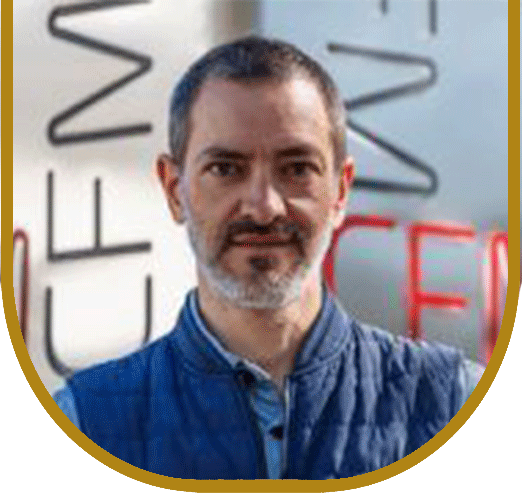
Jorge S. Dolado is the co-coordinator of the Transborder Green Concrete Lab (The Basque Country (Spain) and Nouvelle-Aquitaine (France) initiative for cement and Concrete Research).
After an initial stage where his research focused on the effect of extraordinary transmission of light in millimeter and microwave waves, he transitioned to studying the structure of cement and related materials using atomistic simulations and multiscale models, pioneering this type of study in the field. This research activity materialized in the coordination of the European project CODICE. Following that, his attention has been focused on developing an atomistic Kinetic Monte Carlo model that has allowed for the first time a correct description of mineral dissolution processes, implemented in the registered software KIMERA. Another noteworthy aspect has been the use of atomistic simulations to guide the design and synthesis of cementitious materials such as tobermorite, nanominerals, portlandite nanotubes, or C-S-H nanoparticles that act as accelerators in the cement hydration process. This latter discovery was patented and received the 3rd prize at the EARTO Innovation Awards 2019.
In recent years, he is applying his knowledge on multi-scale modelling to design novel cementitious materials for energy harvesting and storage. In projects such as ECRETE, from the Spanish National Plan, the European project NRG-STORAGE, and the Japan-Eu project PoroPCM, he is seeking a new class of cementitious materials optimized for thermal energy storage. Currently Jorge S. Dolado coordinates the FET OPEN MIRACLE where he is working on the design a photonic meta-concrete whose response to light allows for daytime radiative cooling.”

Director of Compassionate Sustainability at the Stanford University School of Medicine CCARE Institute (Center for Compassion, Altruism Research and Education, under Dr. James R. Doty). Additionally, James is appointed Faculty at Singularity University, Senior Fellow at NASA Ames Research Center, and a White House / OSTP Appointee to a joint taskforce on Regenerative Infrastructure. Mr. Ehrlich is also the Founder of ReGen Villages Holding, B.V. a Stanford University spin-off formed in the EU as a Dutch impact-for-profit company, using machine learning software to address the U.N. 17 Sustainable Development Goals, specifically to provide solutions for affordable housing, climate change adaptability, and regenerative resiliency. Mr. Ehrlich founded ReGen Villages in 2016, with its patent-pending VillageOS™ operating system software, using machine learning to design and operate bio-regenerative and resilient (self-reliant) neighborhood infrastructure and retrofits - integrating clean water, renewable energy micro-grids, high-yield organic food, and circular nutritional flows at the neighborhood scale. To promote healthy long-term outcomes for residents and flourishing communities. A serial entrepreneur in Silicon Valley for over 25 years, James successfully founded and managed technology and media companies with successful exits. For nearly a decade, Mr. Ehrlich executive produced an award-winning national public broadcasting series based on his case study research of organic and bio-dynamic family farms, that at its apex reached over 35-million homes each week and is also the co-author of a best-selling companion book on Hachette, Organic Living THG (2007).
IEREK has an unyielding policy regarding plagiarism. We believe that copying/taking the ideas and work of other Authors without permission and credit is fraudulent. The Reviewing committee and IEREK employees have the authority to reject a paper during its reviewing process, based on the paper being subjected to either minor or major plagiarism.
Authors must refer to, and abide by, the following instructions in submitting their abstracts/ papers:
This is not a prerequisite for presenting your work at the conference. Meaning, you can present your submitted abstract without intending to publish your work.
This process can only be initiated after payment completion and confirmation:
Registration
To help the organizers plan for inter-disciplinary dialogue, participants are requested to choose from the conference themes/ Topics upon registration.
They must also refer to, and abide by, the following instructions in registering and submitting their abstracts/ papers:
Types of Participation
1. Attend/ Present Virtually and Publish in Conference proceedings
Organized from the comfort of your own home, the conference offers a virtual attendance option for your convenience. That said, participants will have a chance to present their abstract/research, online, and have their work considered for publication in the proceedings.
Virtual presenters are required to submit an abstract and extend this abstract to a full paper following the “author instructions” below and before the deadline (see Important Dates). At least one author must pay the registration fee (see Conference Fees).
For any reason, authors may wish to submit pre-recorded video presentations no later than 15 days prior to the conference. Alternatively, they may wish to record a voice-over PowerPoint presentation for submission to the conference organizers.
2. Registration to publish in the proceedings (Full Paper) without presenting/ attending
If your Full paper is accepted, it may be published in the conference proceedings book in the Advances in Science, Technology & Innovation Book Series by Springer (indexed in Scopus) even if you are not attending the conference. In this case, the accepted work will not be included in the final conference program and the fee will cover the cost of editorial handling and peer-review evaluation of your paper (See Author Instructions and Publishing Opportunities)
3. Non-presenting participant
Non-presenting participants may also wish to attend the conference as Audience Members or Co-authors contributing to an already submitted abstract/ paper.
| Type of Registration | ASTI Book by Springer Scopus indexed | Open Access IEREK press Journals | Co-author/ Audience | Payment Deadline |
|---|---|---|---|---|
| Student | 250 € | 200 € | 50 € |
15 May 2024 |
| Academic | 300 € | 250 € | 100 € | |
| Professional | 350 € | 300 € | 100 € |
| *Authors may request that their kits be delivered, for an additional fee decided by the courier, and upon request. Alternatively, authors located in Egypt can pick them up from Cairo/ Alexandria office. | ||||
| Additional Conference Kit (Excluding Delivery) *Contact us for a quotation on shipping fees. | 100 € | |||
Loyalty Membership Discounts
The more you attend, the more you're rewarded!
IEREK offers its loyal participants with the following discounts depending on his/her attendance:
|
Attendance |
Second |
Third |
Fourth |
Fifth |
|
Discount |
5% |
10% |
15% |
20% |
*The aforementioned discounts are only applicable during Regular and Late Payment times. For more information, please refer to 'Important Dates'.
Payment Methods
Payment of the registration fee can be made via the following methods (only after online registration):
1. Bank transfer
Kindly send a request to the conference coordinator/ email and CC [email protected] to receive bank details to complete the payment.
2. Online payment gateway (PayPal)
Participants who would like to complete their payments online must send a request to the conference coordinator/ email and CC [email protected] to receive a customized link to complete their payments.
3. Cash in IEREK branches
Payment in person can be arranged. Please contact the conference coordinator/ Email to receive further information.
Payment Terms and Guidelines:
Delegates in any event who cancel their registration due to special circumstances will receive refunds according to the following:
| Cancellation Policy | Up to 60 days before the event | 59 days before the event |
| Penalty | 20% | 100% |
A refund is not possible if
- An acceptance letter has been issued (Authors only)
- The proceedings of the event have been published (Authors only)
- A submitted manuscript is rejected by the editorial board after going through peer review.
Attending a conference dramatically enhances both your professional and personal development. They help you sharpen the saw, meet and converse with industry experts, expand your resources and grow your professional network. IEREK Conference will help you:
1. Open Discussions: We bring together leading academic scientists, from different universities and countries, to exchange and share their experiences and research results.
2. Internationally Accredited Certificate: The participants are granted internationally recognized certificates acknowledged by IEREK, the University, and Partnering Organizations.
3. Publication: Selected high-quality manuscripts will be published, after peer review, in the Advances in Science, Technology & Innovation (ASTI) book series by Springer or by IEREK Press Journals, both of which are indexed in world-renowned databases.
4. Research Technologies: Conferences can expand your resources by providing a great opportunity to promote gathered information on new technologies related to your research.
5. Networking: You can engage with industry experts to discuss with them the very latest research projects they could be working on and increase your chances of collaboration in future projects.
6. Academic Reputation: Attending many conferences will make you a known figure in academic circles and an active member of the academic community.
7. Conference Abstracts Material: Delegates will receive the conference Abstracts book in both hardcover and digital format on a CD. Shipping fees may apply.
*IMPORTANT: Minor changes could occur and the program could be updated accordingly. All participants should regularly check the program until the event's launch.

ORCID, which stands for Open Researcher and Contributor ID, is a global, not-for-profit organization that aims to provide unique identifiers for authors, researchers, and scholars. ORCiD effectively eliminates duplication and errors regarding author names, affiliations, previous works, and all related academic data.
IEREK is a proud member of ORCiD, and we contribute directly to their initiative of clear and identifiable markers for researchers and scholars. As the first Egyptian partner to ORCiD in the organization’s history, we strongly believe that by utilizing ORCiD’s database and verification services, we become one step closer to achieving an accurate, and identifiable academic landscape.
We encourage our authors to input their ORCiD ID when registering for one of our conferences, submitting an abstract, or a full paper. By doing so, you directly link your research to your identity and affiliation and can showcase your various academic efforts all in one place. By Registering your ORCiD ID, you also increase your works’ visibility and provide easy access to your entire library of research and academic activity.
Click here to learn more about ORCiD, and here to register your ORCiD ID for free.






















Anna Laura Pisello
Full professor of Building Physics and Energy Systems at University of Perugia.

Cristina Piselli
Assistant Professor, DIDA - Department of Architecture, University of Florence, Italy.


Subscribe to our newsletter
Join IEREK community